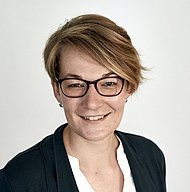
Doctoral Project
From an intermediate station to a space for action. Life paths, networks and memory(s) of Displaced Persons in Flossenbürg (1945-1951)
In the years after World War II, while waiting in Germany and before emigration, some Displaced Persons (DPs) became energetic “memory activists” (Gutman/Wüstenberg). Among them were Nazi survivors but by far not only.
The aim was to identify and commemorate the murdered and to collect material about Nazi crimes. The memorialization was not only part of (re)creating a collective identity but aspect of political agenda(s). Whereas more research on Jewish DPs has been done, this is not the case for the in size much bigger group of non-Jewish DPs coming originally and mostly from Eastern Europe.
While there was cooperation in some memorial projects, often Jewish and Non-Jewish groups chose to act independently - or like Flossenbürg worked also against each other. Though there, a large-scale memorial was one of the first Concentration Camp Memorials in Germany ever built - 1946 and the following years –, these mostly (non-Jewish) DP activities are largely forgotten. Or more precise: due to language barriers as well as conflicted past(s) and narratives silenced (Michel-Rolph Trouillot). This was not only the case in the German speaking world or in “Western countries”, where most of the DPs emigrated. Due to the Cold War, DPs were largely a taboo in their countries. They were often described as nationalists, criminals and/or Nazi collaborators.
By bringing together migration and diaspora history, memory studies, Second World War history and its aftermaths, these previously ignored Eastern European “memory activists” will be shed light on. A strong focus is placed on their self-perceptions. With the help of intensive archival research in Eastern European diaspora archives in the US, Australia, Canada and the UK, it was possible to include untapped sources. Main questions are: How did heterogeneous backgrounds, conflicted narratives and political agendas influence early memorial sites dedicated to Nazi victims? How did these DP activities have an impact beyond their group(s)? Why, how and by whom were these Displaced “memory activists” silenced?
Curriculum Vitae
Sarah Grandke, historian, curator and PhD candidate. She is researching at the University of Regensburg, Germany (advisor Prof. Dr. Guido Hausmann and Ass. Prof. Anna Holian/Arizona State University).
Till April 2024, she was visiting research fellow at the Sydney Jewish Museum, Australia. 2018 to 2023, she was curator at the Hamburg documentation center "denk.mal Hannoverscher Bahnhof" on Nazi deportations of Jewish and Romani people. 2016 to 2018, Sarah worked at Flossenbürg Concentration Camp Memorial and was previously curator at the Munich Documentation Centre for the History of National Socialism in an exhibition project on the history of Sinti and Roma.
Her studies brought her to Ludwig-Maximilians-University Munich, University of Erfurt, Łódź, Poland and Lviv, Ukraine.
She publishes on displaced persons, the Nazi persecution of Jews, Sinti and Roma, as well as innovative education and exhibition projects. Besides that, she writes in an essayistic and personal way about researching DP histories, their legacies and meeting their decedents: https://vakantio.de/mitgeschichteumdiewelt
Selection of Publications
2022 Moving memories - Memories on the move? Commemoration Initiatives of Displaced Persons in Flossenbürg 1946/47 (German), in: NS-Verfolgte nach der Befreiung. Beiträge zur Geschichte der nationalsozialistischen Verfolgung (ed. KZ-Gedenkstätte Neuengamme), pp. 45-64.
2022 Far away? - Close by! International Workshops as a Participatory Design Tool at denk.mal Hannoverscher Bahnhof (German), in: Deportationen dokumentieren und ausstellen. Neue Konzepte der Visualisierung von Shoah und Porajmos. Reihe Neuengammer Kolloquien, Band 8 (ed. Oliver von Wrochem), pp. 264-280.
2021 The Persecution of Sinti and Roma in the German Reich. The case of Munich (German), in: The genocide of the Sinti and Roma: a "blind spot" to this day. Dachauer Symposien zur Zeitgeschichte; Bd. 19, (ed. Karola Fings/Sybille Steinbacher), pp. 20-51.
back